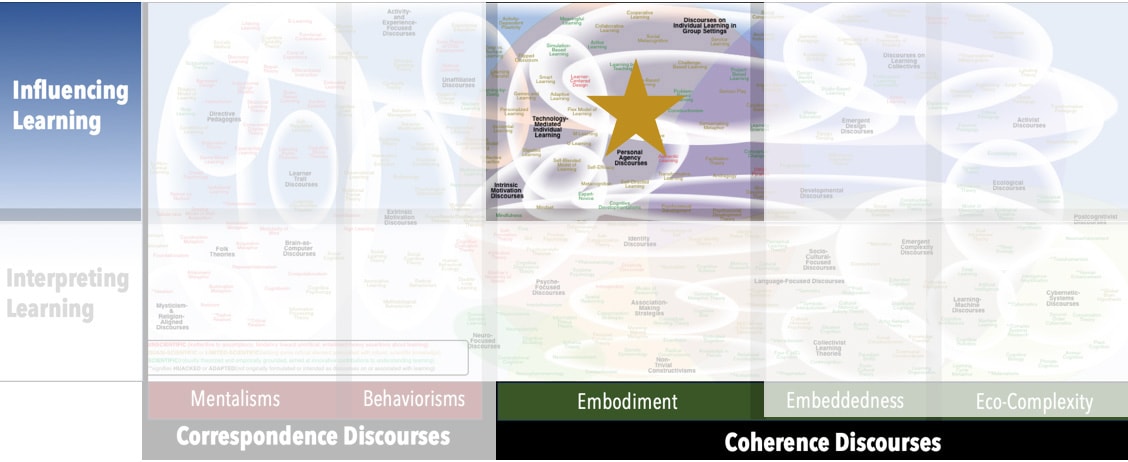AKA
Kaleidoscopic Learning
Focus
Connecting concepts and methods across disciplinesPrincipal Metaphors
- Knowledge is … established concepts and methods
- Knowing is … applying appropriate ideas or skills
- Learner is … a meaning maker (individual)
- Learning is … connecting, integrating
- Teaching is … supporting integration
Originated
1980sSynopsis
Integrative Learning is a movement, principally in post-secondary education and especially among the STEM domains, concerned with designing lessons to help learners make connections – across disciplinary knowledges, skills, interpretive practices, investigative methods, problem-solving strategies, verification techniques, and so on.Commentary
Apart from occasional concerns that an over-emphasis on Integrative Learning might blunt the learners’ appreciations of the particular characters of different disciplines, there seem to be few criticisms of the underlying principle. More criticisms are voiced about the pragmatics of Integrative Learning. At the post-secondary level, where disciplinary demands can be intense and student interactions with the teacher can be limited, it can be difficult to manage meaningful and in-depth integration.Authors and/or Prominent Influences
DiffuseStatus as a Theory of Learning
Integrative Learning is not a theory of learning.Status as a Theory of Teaching
Integrative Learning is a perspective on teaching.Status as a Scientific Theory
Integrative Learning is a perspective on how formal education should be structured, and so it is not a scientific theory. That said, there is modest evidence that efforts toward Integrative Learning contribute to improvements in engagement.Map Location

Please cite this article as:
Davis, B., & Francis, K. (2020). “Integrative Learning” in Discourses on Learning in Education. https://learningdiscourses.com.
⇦ Back to Map
⇦ Back to List
